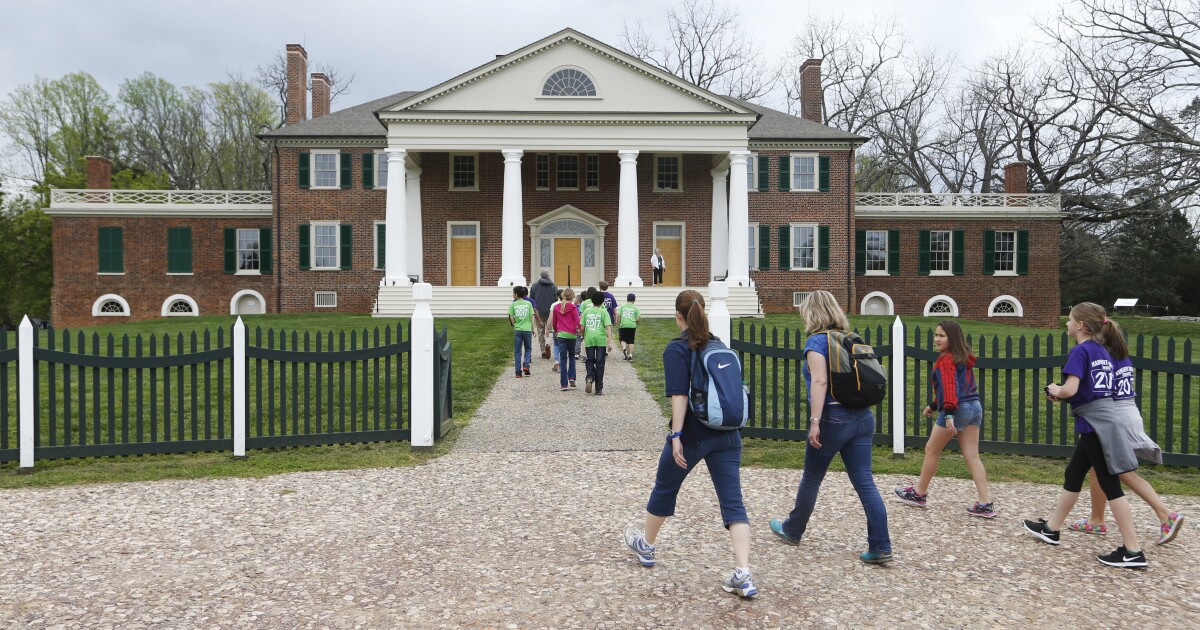

James Madison‘s role in America’s founding has been downplayed in a museum at his own plantation home in Virginia.
A number of visitors criticized the museum after a $10 million grant from left-leaning billionaire David Rubenstein funded a new exhibit that focuses on the experience of slaves.
Through his grant, the museum worked to renovate the site to “offer visitors a more complete version” of history by giving equal attention to the experiences of the enslaved community that lived on Madison’s land, according to Montpelier’s website. However, some museumgoers criticized the move, arguing it places Madison as more of a background character while amplifying the influence of slavery on the nation’s founding.
FREEDOM FROM CRT: STATE BANS ON CRITICAL RACE THEORY START IN TIME FOR JULY FOURTH
“[It’s] a deliberate attack on those founding institutions,” Rep. Bob Good (R-VA) told the New York Post. “The Left is trying to revise our history and is perpetuating a dishonest narrative.”
The criticism comes after the Montpelier Foundation’s board of directors announced in May it would hire a slate of nine directors in an effort to increase the diversity on the board. This angered some members already on the board, who argued the new candidates wanted to revamp Madison’s home into a museum that focused less on him and more so on slavery.
“[They want it to be] a black history and black rights organization that could care less about James Madison and his legacy,” board member Mary Alexander, a descendant of one of Madison’s slaves, told the Orange County Review.
CLICK HERE TO READ MORE FROM THE WASHINGTON EXAMINER
Highlighting the enslavement that occurred at Montpelier “is a disservice to Madison,” she added. “There were hundreds of thousands of slaveowners but not hundreds of thousands who wrote the Constitution.”
As part of the exhibit, patrons can view displays that describe slavery as being part of the country’s foundation, with one exhibit detailing how the first 18 presidents each benefited from slavery in different ways, according to the New York Post. As a whole, the museum aims to link slavery and the Constitution to struggles with the inequalities that exist today, the outlet noted.





